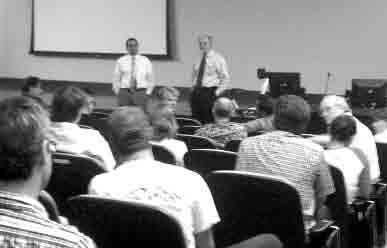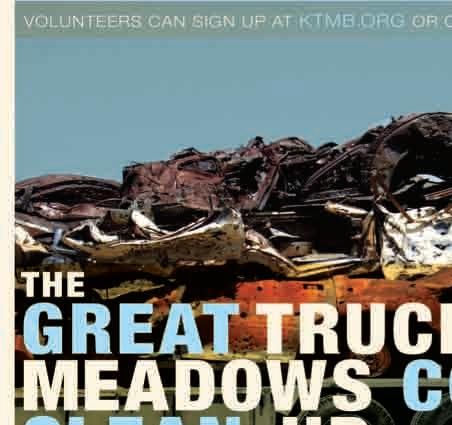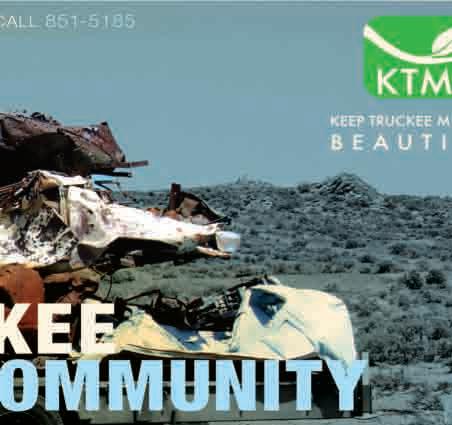
5 minute read
Green
from May 3, 2012
Nevada’s schools don’t make green list
Despite its campus sustainability efforts and new educational programs in environmental science and art, the University of Nevada, Reno was absent from Princeton Review’s Guide to 322 Green Colleges.
Advertisement
Aside from one very brief mention of the University of Nevada, Las Vegas’ participation in the U.S. Green Building Council, Nevada’s higher education institutions were seemingly non-existent in the guide. Both UNLV and UNR have student-led sustainable initiatives, as well as academic programs in environmental or conservation sciences.
The guide states, “We recognize there is a rising interest among students in attending colleges that practice, teach and support environmentally responsible choices. … That’s why, in this book, we take both a quantitative and qualitative look at a school’s sustainability efforts in areas we’ve identified as most important to students: 1) whether students have a campus quality of life that is both healthy and sustainable 2) how well a school is preparing students for employment in the green economy 3) how environmentally responsible a school’s policies are.” Data on each school was collected through surveys, of which 2000 schools participated.
Read the guide at http://bit.ly/K9BExr.
Tree time
In the spirit of Arbor Day on April 27, the city of Reno and Truckee Meadows Forestry Coalition planted 12 trees at Idlewild Park. A tour through the Wilbur D. May Arboretum at Rancho San Rafael park was also hosted.
Arbor Day was established on April 10, 1872, in Nebraska. Countries around the world participate in the holiday during various times of the year.

Open trail
The Mustang-McCarran route of the Tahoe Pyramid Bikeway, part of the Nature Conservancy’s McCarran Ranch river restoration project, will be open to the public on May 5. The trail stretches nine miles from Mustang to the USA Parkway. A celebratory ride will be held at 10:45 a.m., and participants will meet at 10 a.m. on Mustang Road. According to the Tahoe Pyramid Bikeway’s website, “This is an easy, level, dirt ride three miles each way.” Cyclists can continue on the USA Parkway for six additional miles.
The passage was intended to open in December (“Trail blazers,” Dec. 8) but was delayed due to planning and land logistics. More sections of the trail are scheduled to be open late this summer. View the map at http://www.tpbikeway.org/.
—Ashley Hennefer
ashleyh@newsreview.com
ECO-EVENT
Help keep Truckee Meadows clean by participating in the Great Truckee Meadows Community Cleanup hosted by Keep Truckee Meadows Beautiful. Volunteers are needed to remove trash from open space areas and pull invasive weeds from along the banks of the Truckee River. In 2011, more than 500 volunteers participated and removed more than 85 tons of trash and weeds throughout the region. A volunteer appreciation picnic will be held after the cleanup. May 12, 8:30 a.m.-noon. To sign up at one of 15 clean-up or weed-pull sites, go to www.ktmb.org or call 851-5815.
Got an eco event? Contact ashleyh@newsreview.com. Visit facebook.com/RNRGreen for more.

PHOTO/ASHLEY HENNEFER
Political science
Senate Bill 271
Leo Drozdoff, left, and John Laird answer questions from the crowd at the seminar on April 23.
According to Leo Drozdoff, Nevada secretary of conservation and natural resources, policy and science “link up all the time.” by Ashley Drozdoff, along with John Laird, California secretary of natural resources, discussed issues on environmental policies of Lake Tahoe at a
Hennefer seminar on April 23 hosted at the University of Nevada, Reno. Laird and Drozdoff spoke mostly on the logistics of protecting Lake Tahoe betweenashleyh@ newsreview.com two states, to which Nevada contributes one-third of the budget, with the other two-thirds the responsibility of California. “There’s probably less development on the Nevada side, and less contributions from us,” said Drozdoff. “It’s been a wake up call for the two states to reestablish their relationship.” He’s referring to Senate Bill 271, which would withdraw Nevada out of the Tahoe Regional Planning Agency (TRPA) if it doesn’t maintain Lake Tahoe conservancy efforts with its share of the lake. The bill was sponsored by Nevada Sen. John Lee (“Tahoe agency held hostage?” Upfront, Feb. 23), and it has been criticized for encouraging division, rather than collaboration, between Nevada and California. According to a post on the Tahoe Project website, a nonpartisan environmental policy organization, “Not least among the concerns is whether Nevada abdicates sovereignty over its lands, and whether the state relinquishes its ability to meet the needs of its citizens, by being party to the Compact in its current form.” Read the full text of The post goes on to quote Secretary of State Ross Miller, “I believe that
Senate Bill 271 at withdrawing from the compact doesn’t make any sense. We need sharedhttp://legiscan.com/ gaits/text/330408. vision between the two states to make environmental progress.” Organizations such as the League to Save Lake Tahoe and the NevadaEastern California chapter of the Sierra Club have also spoken out in opposition of the bill. However, Drozdoff, while insisting that Nevada’s departure from the TRPAwould be a last resort, spoke about the bill’s potential. “It puts some science behind concerns,” he said. “And it creates a roadmap for the kind of changes we need to make at the lake.” The concerns Drozdoff referred to include water clarity of the lake, as well as air quality. The bill states, “The waters of Lake Tahoe and other resources of the region are threatened with deterioration or degeneration, which endangers the natural beauty and economic productivity of the region. … Increasing urbanization is threatening the ecological values of the region and threatening the public opportunities for use of the public lands. … In order to preserve the scenic beauty and outdoor recreational opportunities of the region, there is a need to insure an equilibrium between the region’s natural endowment and its manmade environment.” When asked by an audience member if Nevada has any right to pull out of TRPA, Drozdoff replied, “There’s no desire to do that.” “I think they’ve gotten a sense of urgency,” said Laird in regards to the potential effectiveness of the bill. “What we’re focusing on is bringing parties together who normally haven’t been together to talk about these things.” Changes must be made according to TRPA’s standards by 2013. Ω














